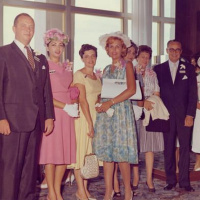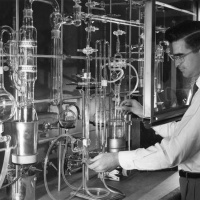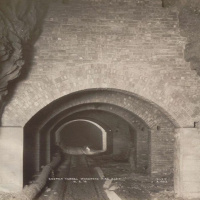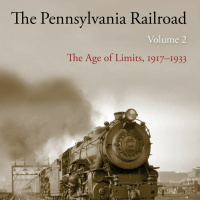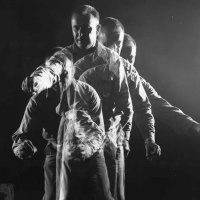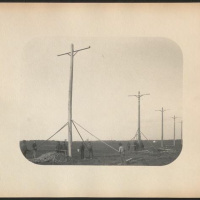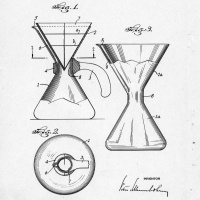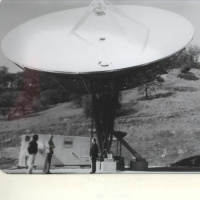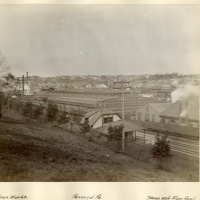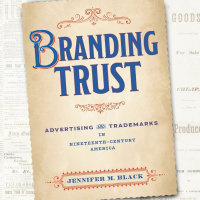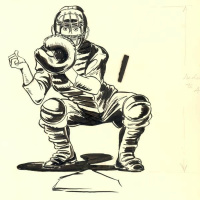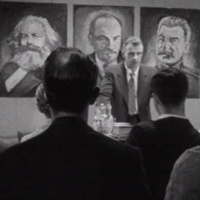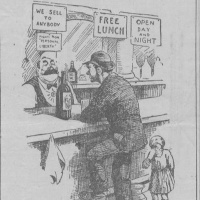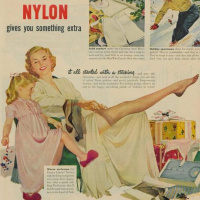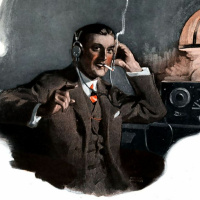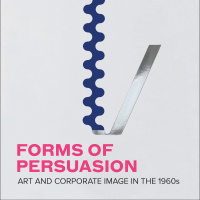Stories From The Stacks
- Author: Vários
- Narrator: Vários
- Publisher: Podcast
- Duration: 76:42:36
- More information
Informações:
Synopsis
Podcast by Hagley Museum and Library
Episodes
-
The Only Way Is Up: Self-Employment in Britain, 1950-2000 with Amy Edwards
15/04/2024 Duration: 21minThe self-employed have many motivations for choosing or accepting their working arrangements. A business model that taps into the desire for people to “work for themselves” can mobilize the capital, networks, and labor of large numbers of people at comparatively low cost. Whether through franchising, direct-selling, or other methods, major firms became enablers, advocates, and beneficiaries of self-employment. The latest research by Dr. Amy Edwards, senior lecturer at the University of Bristol, focuses on the tangle of personal and corporate interests around self-employment. While the top-down element of the franchise or direct-sales relationship is evident, the personal motives of the self-employed franchisee or direct-sales representative could make the arrangement mutually profitable. Bringing her family’s story into conversation with archival materials, including the Avon collection at the Hagley Library, Edwards explores the cultural as well as political and economic aspects of self-employment in late
-
Chemistry, Capitalism, & the Commodification of Nitrogen with Chris Morris
01/04/2024 Duration: 28minNitrogen is the most abundant element in the Earth’s atmosphere, it is essential to life and biological processes, and yet it is virtually impossible to access nitrogen absent the mediation of something or someone that can “fix” gaseous atmospheric nitrogen into a stable form. Historically, these mediators were biological organisms, such as cyanobacteria, that can fix nitrogen and make it available in the ecosystem and economy. Not until the advent of modern chemistry and chemical industries did a method for synthetically fixing nitrogen exist, but once developed, it became an essential component of the human economies of agriculture and warfare. In his latest research, Chris Morris, professor of history at the University of Texas – Arlington, explores the long history of nitrogen, from the guano islands of Peru to its modern re-creation as an industrially-produced, globally-traded commodity. Using Hagley Library collections including the DuPont Company archives, Morris reveals a hidden history that connect
-
Holy Holes: Mining and Religion in the Americas with Rebecca Janzen
18/03/2024 Duration: 28minWhen miners go underground, they enter a spiritual realm distinct from that aboveground. Across time, places, and cultures, miners have made religious observance part of their work, building shrines, making offerings, and naming places after sacred personages. What connects these practices, and how can we access the meaning behind them? The latest research of Rebecca Janzen, professor of Spanish and comparative literature at the University of South Carolina, addresses this cultural phenomenon as it has been manifested by miners in the Americas from the mid-nineteenth century to the present. Studying cases in the United States, Mexico, Brazil, and others, Janzen pulls together numerous kinds of sources, including church documents, public records, and corporate archives such as the Bethlehem Steel collection held at the Hagley Library. Janzen offers us a glimpse underground and into the hearts of miners and mining communities. In support of her work Dr. Janzen received funding from the Center for the History
-
The Pennsylvania Railroad: The Age of Limits, 1917-1933 with Albert Churella
04/03/2024 Duration: 01h44minEven the standard railroad of the world had limits. At the dawn of the twentieth century the Pennsylvania Railroad was at the most powerful it had been. As they began to learn, even that power could only reach so far. Albert Churella’s The Pennsylvania Railroad Volume 2: The Age of Limits 1917-1933 is the recently released middle volume in his trilogy on the history of the Pennsylvania Railroad. In this interview Churella discusses how the railroad grew and changed in the early twentieth century as it faced increasing competition from other methods of transit, government oversight, and the realities of a world that was rapidly changing. Churella does this by interweaving corporate with personal history tracing the life and career of WW. Atterbury who began his career in the Pennsylvania Railroad’s Altoona shops and retired as president in 1935. Atterbury oversaw many projects during his time leading the railroad ranging from the development of the M1 steam locomotive to electrification between New York Cit
-
Tired!: Industrial and Workplace Fatigue, 1900-1950 with Tina Wei
19/02/2024 Duration: 27minWork tires folks, and if fatigue is allowed to continue unabated, it can wear them right out. Studies of industrial and workplace fatigue during the first half of the twentieth century sought to address this pressing social and economic problem. But for whose benefit: labor or capital? The dissertation research of Tina Wei, PhD candidate at Harvard University, demonstrates that this matter was of real concern to labor unions, business owners, management, and research scientists. Using multiple sources, including the records of the National Industrial Conference Board held at the Hagley Library, Wei explores how concept of industrial fatigue changed over time from a primarily physical matter to one focused on mental and emotional states. In support of her work, Wei received funding from the Center for the History of Business, Technology, & Society at the Hagley Museum & Library. For more information on our funding opportunities, and more Hagley History Hangouts, visit us online at hagley.org.
-
Freedom to Harm: Private Violence and the American State, 1860-1895 with Hugh Wood
05/02/2024 Duration: 27minThe Weberian definition of the state is an institution with a monopoly over legitimate violence within a defined territory. Eager to explain the genesis of European nation states, Weber’s model is a poor fit for the history and experience of American statehood. What might explain the marked failure of the United States government to monopolize violence within its territory, and the historical and contemporary prevalence of violence in American civil society? In his dissertation research, Hugh Wood, PhD candidate at Cambridge University seeks to find an answer. Using three case studies of private violence sanctioned by the state, expropriation and murder of indigenous people in the West, corporate policing and labor discipline in the industrial North, and the night riders and lynchings of the Jim Crow South, Wood explores the long history of bloodletting in American civil society. Wood’s project explores an essential element of American history with profound implications for the present. In support of his wo
-
The Council for a Union Free Environment with Moeko Yamazaki
22/01/2024 Duration: 09minIn the 1970s, the National Association of Manufacturers organized a subsidiary, the Council for a Union-Free Environment, to provide member firms and managers with tools to prevent labor organization and union activity in their business operations. The council remained active into the 1990s, when it was dissolved. As part of her dissertation research, Moeko Yamazaki, a PhD candidate at the University of Oregon, dug into the NAM collection and the CUE records in particular. Here research was supported by the Center for the History of Business, Technology, and Society at the Hagley Museum and Library. For more Hagley History Hangouts visit us online at hagley.org/hhh.
-
Power Up: A Social History of American Electricity with Trish Kahle
08/01/2024 Duration: 27minThe history of American electricity is often told through the experiences of engineers and managers, but these were only a handful of the many thousands of workers who built, maintained, and ran electrical utility systems in the Unites States. The linemen, clerks, pipe fitters, marketers, secretaries, and many, many others who do the work to keep the power on have little space in the literature. In fact, we have collectively learned not to see these workers and the work that they do even when they are right in front of our eyes. That’s where the research of energy historian Trish Kahle enters the picture. Dr. Kahle, former NEH-Hagley postdoctoral fellow and current assistant professor in the Edmund A. Walsh School of Foreign Service at Georgetown University – Qatar, researches the social relations that develop within and around energy systems. Her current project examines the development of the American electrical grid through major episodes in its history: early forays into the construction process in th
-
Tasteful Design: Peter Schlumbohm & the Chemex Coffeemaker with Clark Barwick
25/12/2023 Duration: 26minAmericans love coffee, but the coffee in American cups has changed a lot over the years. Three waves of coffee consumer culture washed over the twentieth-century United States: the mass commodity wave, the differentiation wave, and the aficionado’s wave. With each wave came changes to the way Americas bought, prepared, and consumed coffee. Present throughout the decades, however, has been the Chemex coffeemaker designed in the 1930s by chemist and industrial designer Peter Schlumbohm. Uncovering the story of the Chemex coffeemaker is Clark Barwick, cultural historian and teaching professor of business communication at Indiana University. Using the Schlumbohm collection of scrapbooks and papers held in the Hagley Library, Barwick discovered how a desire for a cleaner cup of coffee, and a knack for marketing and promotion, led Schlumbohm to create and share the Chemex with the world. More than eighty years later, the device is still a beloved standard piece of equipment among coffee lovers everywhere. In supp
-
llusions of Progress: Business, Poverty, and Liberalism in the American Century with Brent Cebul
11/12/2023 Duration: 47minIn this episode Roger Horowitz interviews University of Pennsylvania historian Brent Cebul about his new book Illusions of Progress: Business, Poverty, and Liberalism in the American Century. In the interview Cebul explains his book’s core notions of “supply-side liberalism” and “business producerism” to explain how local elites, often quite conservative, made peace with and actually administered liberal New Deal programs including public works, urban redevelopment, and housing. Ranging between a close look at small town Georgia and urban Cleveland, Cebul explains how the New Deal built on older liberal traditions of using state resources to boost capitalist enterprises that needed capital resources in order to grow. In doing so, in essence binding national visions of progress to the local interests of regional business elites, liberals often entrenched the very inequalities of power and opportunity they imagined their programs solving. For more Hagley History Hangouts and more information on the Center for
-
Pirates of the Caribbean: U.S. Satellites & Media in the 1980s Americas with Fabian Prieto-Nañez
27/11/2023 Duration: 24minThe early history of satellite broadcast has a Gemini aspect: twin origins in the research and development laboratories of major American corporations, and in the homes and workshops of legions of grassroots tinkerers across North and South America, notably in the Caribbean. These two streams crossed in the 1980s. Companies like RCA tried to build the infrastructure and market for satellite television but failed to find cost-effective designs for consumer satellite dishes. Meanwhile grassroots innovators and activists found ways to mass-produce inexpensive satellite dishes but were blocked from accessing the corporate broadcast signal. “Pirated” satellite television was born. Fabian Prieto-Nañez, assistant professor of Science, Technology, & Society at Virginia Tech University, uncovers this history in his latest research. Using the RCA collection held in the Hagley Library and pairing its “institutional voice” with the voices of small-time innovators he has discovered in the Caribbean, Prieto-Nañez argues t
-
Philadelphia's Pencoyd Iron Works: Forging Along the Schuylkill River with Kevin Righter
13/11/2023 Duration: 01h05minKevin Righter’s book, Philadelphia's Pencoyd Iron Works: Forging Along the Schuylkill River began as a family history project. Righter’s great grandfather, Walter Righter worked at Pencoyd from 1885 through 1933, retiring as superintendent of motive power. When Righter began research for this project, he realized that little had been written on Pencoyd Iron Works, which operated in the Manayunk section of Philadelphia for nearly a century, so he sought to fill that gap. This interview covers that family history and interweaves it with the history of steelmaking in the United States, from Pencoyd’s opening in 1852, through coming under control of US Steel to its closure following the end of WWII. Pencoyd’s steel was most famously used in the construction of bridges and the first elevated railways in the United States, but many architects in the late nineteenth century incorporated Pencoyd steel into their structures, including Philadlephia’s Frank Furness. Many bridges and structures containing Pencoyd manufa
-
Who Can You Trust?: Brands, Deception, & Markets with Jennifer Black
30/10/2023 Duration: 26minWould branded goods, by any other name, not smell as sweet? Branding is one means by which businesses try to communicate with consumers, cultivate trust, and capture market share. The practice has a long history in America and was central to the attempts of producers to differentiate their products, consumers to navigate the uncertainties of the marketplace, and forgers to cash in on the value of a brand name. In a pair of book projects, Dr. Jennifer Black, associate professor of history at Misericordia University, investigates the cultivation of market-trust via branding, and the subsequent attempts by fakers to pass off their goods as the genuine article. Branding Trust: Advertising & Trademarks in Nineteenth-Century America (University of Pennsylvania Press, 2023) reveals the process by which innovations in marketing techniques created the modern American brand landscape. In her new project, Consuming Deception, Black looks at the flip side of the coin, where fakes and forgeries attempt to make a living o
-
Organized Baseball: Reworking the Transnational Circuit, 1946-1965 with Evan Brown
16/10/2023 Duration: 36minBaseball fans often tout the “timeless” quality of the sport; and the air in baseball stadiums can be thick with tradition. However, the business of baseball, its labor and management practices, and its marketing and revenue systems have been a work-in-progress from the first. Sports historian Evan Brown, a PhD candidate at Columbia University, is uncovering the inside baseball story of the mid-twentieth century in North America, when players moved across borders and between leagues, and management was seeking new ways to exert control over their franchises and employees. The changes in baseball reflected concurrent changes in American society: the relocation of population away from the Northeast toward the West and Sunbelt; the move by stadiums and teams out of downtown cores to suburban industrial parks; the skyrocketing importance of broadcast media to culture and the economy. Brown accessed the archive of Philadelphia Phillies materials held in the Hagley Library to uncover his story. In support of his
-
Willing Communist Collaborators?: DuPont in China, 1946-1953 with Juanjuan Peng
02/10/2023 Duration: 32minThe DuPont Company had a presence in China beginning in the 1920s. With a business selling imported dyestuffs, the company operated out of Shanghai until the Japanese takeover of the country. Following the Second World War, the company resumed operations, continuing even while the fighting continued during the Chinese Civil War. With the 1949 ascent of the Chinese Communist Party, what would DuPont and other American businesses do with their Chinese operations? Historian Juanjuan Peng, associate professor at Georgia Southern University, used the DuPont Company archive at the Hagley Museum & Library to find out. To her surprise, American businessmen, including those employed by DuPont, were willing collaborators in with the new communist regime, which they hoped would invest heavily in industry. The Chinese entry in to the Korean War, however, and the American sanctions it elicited, forced them to recant and abandon their operations in China. Dr. Peng received support from the Center for the History of Busi
-
The Rhetorical Prehistory of the New Deal with James Kimble
18/09/2023 Duration: 48minWhat is the New Deal? During the election of 1932, Americans did not know what it was, but they knew that they wanted whatever it was. Dr. James Kimble’s research is on the history of this term from the time Franklin Delano Roosevelt first spoke it in the summer of 1932 to when he took office in March of 1933. Throughout the campaign season, FDR never defined what the “New Deal” meant and let the voters decide what it meant for themselves. One of the main ways he accomplished this was by reaching out to the electorate through the still new technology of radio, where he proved to be an effective communicator. At the same time, Chairman of the DNC, John J. Raskob and prior supporter of Democratic candidate for the presidency Alfred Smith, became a critic of FDR and the New Deal. Kimble’s research traces the origins of the term New Deal and Raskob’s evolving criticism of it and FDR. Dr. Kimble is a Professor of Communication and Arts at Seton Hall University and is a historian of domestic propaganda with an
-
TV Town: New York City & Broadcast Media with Richard Popp
04/09/2023 Duration: 29minNew York City played a starring role in the story of American broadcast media, perhaps especially when it came to television. The city was both a major market for television, a proving ground for television techniques and technologies, and an on-screen character in televised news and entertainment. The very physicality of the city, with its canyon-like streets and towering steel and concrete edifices, played a material role in the development and popularization of American television. Historian and media scholar Richard Popp, associate professor at the University of Wisconsin – Milwaukee, is working on a book project exploring the close inter-relationship between New York City and broadcast media, with a focus on television and its associated industries and politics. Using numerous Hagley collections, including the RCA archive, the David Sarnoff papers, and the Margolies collection of travel ephemera, Dr. Popp uncovers a fascinating story of first adopters, regulators, and a society grappling with new, poten
-
An Artist in the Archive: Researching & Sculpting Nylon with Emily Baker
21/08/2023 Duration: 26minArtists bring a unique perspective to historical archives. Like any other researchers, they read and examine documents and collections to learn about their subject. Where their methods diverge is to use archival sources to shape the form and meaning of art created in two and three dimensions. The experiences of past people, accessed through the documents they left behind, can breathe life into the materials worked by an artist’s hands. Visual artist Emily Baker, assistant professor of sculpture at Georgia State University, specializes in metalworking. When she encountered the repeated claim that nylon is stronger than steel, she wanted to learn more about the material, its production, and its meaning. Conducting research in the DuPont Company archives held in the Hagley Library, Baker gathered a treasure trove of context information and specific examples of nylon being linked to consumer psychology. Most notable in this connection was the frequent reference made in the archive to sex and gender roles and bou
-
Smoke ‘Em If You Got ‘Em: American Tobacco & Broadcast Media with Peter Kovacs
07/08/2023 Duration: 26minThe American tobacco oligopoly of five firms loomed large in the mid-twentieth century thanks to the addictive qualities of their products and the massive investment they made in broadcast marketing communications, influencing the media experience of millions of Americans and the wider landscape of American media for generations. Media historian Peter Kovacs is conducting research on the influence of American tobacco firms on broadcast media, and argues that the tobacco company sponsorship of broadcast programs on radio and television profoundly shaped the form and content of both individual programs and the broadcast media industry at large. Using Hagley’s unrivalled collection of marketing and advertising archives, including the papers of ad agency giant BBD&O, Kovacs assembles a story of corporate competition over the airwaves from the first tobacco -sponsored radio program in 1924 to the banning of broadcast tobacco advertising in 1971. Dr. Kovacs received support for his research from the Center for t
-
Forms of Persuasion: Art & Corporate Image in the 1960s with Alex Taylor
24/07/2023 Duration: 42minIn this episode of Hagley History Hangout Roger Horowitz sits down with Alex Taylor to discuss his new book, Forms of Persuasion: Art and Corporate Image in the 1960s, the first dedicated history of corporate patronage in post-war art. Taylor’s book considers how a wide range of artists were deeply immersed in the marketing strategies of big business during the 1960s and explored with multinational corporations new ways to use art for commercial gain. From Andy Warhol’s work for packaged goods manufacturers to Richard Serra’s involvement with the steel industry, Taylor demonstrates how major artists of the period provided brands with “forms of persuasion” that bolstered corporate power, prestige, and profit. Drawing on extensive original research conducted in artist, gallery, and corporate archives, Taylor recovers a flourishing field of promotional initiatives that saw artists, advertising creatives, and executives working around the same tables. Alex J. Taylor is associate professor of art and visual cul

